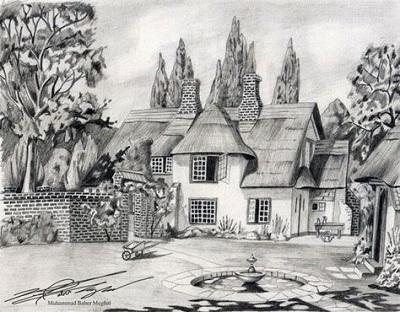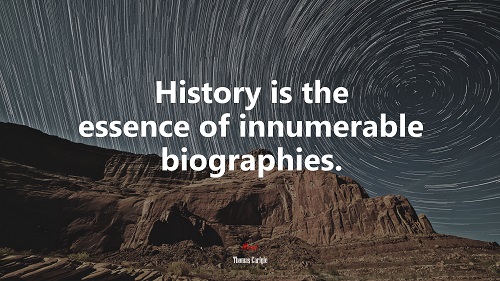Your place in history

History never looks like history when you are living through it
“The only real differences in the world are made by one person; the right person in the right place at the right time.” So written by Sydney Harris. “It is one person,” he continued, “who makes the difference everywhere.” And he added that these makers of history didn’t have to be famous or important in the world. “John Wilkes Booth, a fanatical failure, changed history quite as much as Lincoln did.”
We also sometimes think only the famous dates in history are important such as the Bond of 1844 or 6th March 1957. But these dates are perhaps no longer vital to the history of humanity than some other unnoted days that have passed. The day, for instance, when an obscure patent clerk in Bern, Switzerland, began to bring order to the ideas of motion and matter swirling in his head. The day when a sympathetic woman looked on a small boy in the corner of a cabin, agreed to become his beloved stepmother.
Important days? Yes, when one knows that the patent clerk was Albert Einstein, and the small boy was Abraham Lincoln.
“History is the essence of innumerable biographies,” Carlyle wrote. Now we may think our life story is unimportant or uninteresting, but perhaps that is only because we’re so close to it.

John Gardner wrote, “History never looks like history when you are living through it. It always looks confusing and messy, and it always feels uncomfortable.”
But, it should comfort us to know that every person’s life is part of human history. Like the widening ripples of a stone dropped into a still pool, the effects of every life spread and blend with others. It’s impossible to weigh where or when the influence of a life stops.
Because each life is so important, we owe it to ourselves and to those we care about to record our daily deeds, our dreams, our accomplishments, and our disappointments. By so doing we can see more clearly the purpose of our own lives and how we fit into the whole of human history. And by so recording our personal histories we can leave direction and encouragement to those who follow.
Has it occurred to you that our forebears did not live in the past? David McCullough a Pulitzer-Prize winning historian has pointed out that the great men and women of history “lived in the present just as we do. The difference was it was their present, not ours. And just as we don’t know how things are going to turn out for us, they didn’t either.” This is part of what makes their remarkable achievements so inspiring.
He continued: “We have to know who we were if we’re to know who we are and where we’re headed. This is essential. We have to value what our forebears; including our own parents and grandparents did for us, or . . . it can slip away.”
We have each inherited treasures from the past: treasures of experience, of knowledge, of courageous acts, and of freedom. More than ever before, history is readily available, but if we don’t explore it, it is worthless to us, much like buried treasure that remains buried.
History becomes valuable as it is studied and shared. A good place to start is a cemetery. Visit one and look at the gravestones for young and old from all walks of life. Read the monuments to soldiers and fallen heroes; think about what we have today because of their sacrifice. Take note of dates and begin piecing together life stories. Every monument is a piece of history. We can casually glance and move on, or we can pause to reflect, remember, and learn.
As our hearts turn to our forebears; both in and outside our family tree, we grow ever more grateful for them and their contributions. We see how their lives shaped ours, and we become more determined to make the most of our portion of the present as they did so honourably with theirs.
By Samuel Enos Eghan
Email: samueleghan@gmail.com













